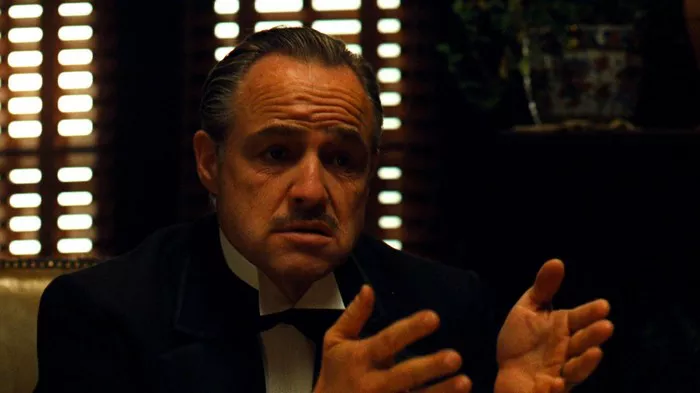Unveiling the cinematic masterpiece that is “The Godfather,” one might wonder about the language that contributes to the film’s enduring allure. In this exploration, we delve into the linguistic tapestry woven by Francis Ford Coppola, as “The Godfather” unfolds its saga of power, family, and organized crime against the backdrop of a language that resonates with authenticity and cultural richness.
I. The Godfather’s Italian-American Vernacular: A Cultural Symphony
1. The Authenticity of Dialogue: Marrying English with Italian
“The Godfather” is renowned for its authentic portrayal of the Italian-American experience. The film ingeniously integrates English and Italian dialogues, capturing the essence of the characters’ cultural roots. From the Corleone family gatherings to pivotal moments of tension and drama, the use of Italian enriches the narrative, making it a linguistic symphony that reflects the characters’ identity and heritage.
2. The Sicilian Connection: Nods to Ancestral Roots
Sicily, the ancestral home of the Corleones, plays a significant role in the film’s narrative. During critical moments, characters converse in Sicilian, deepening the connection to their roots and underscoring the importance of family ties. The use of Sicilian adds a layer of authenticity and emotional resonance, transcending mere linguistic choices.
II. The Universal Language of Power and Betrayal
1. English as the Language of Power
While Italian and Sicilian contribute to the film’s authenticity, English remains the dominant language of power and negotiation. The juxtaposition of English with the characters’ native languages creates a dynamic interplay, symbolizing the duality of their identities as immigrants striving for the American Dream while remaining anchored in their cultural heritage.
2. Expressions Beyond Words: Non-Verbal Communication
Beyond spoken language, “The Godfather” is renowned for its mastery of non-verbal communication. The characters’ gestures, glances, and body language convey as much, if not more, than their spoken words. This silent language adds depth to the film, allowing viewers to grasp the nuances of power dynamics, loyalty, and betrayal.
III. Legacy and Impact: The Godfather’s Linguistic Influence
1. Cultural Impact: Echoes in Pop Culture
“The Godfather” has left an indelible mark on popular culture, influencing subsequent films, television series, and even everyday language. Phrases like “I’ll make him an offer he can’t refuse” have become iconic, transcending the boundaries of the film and entering the lexicon of everyday conversation.
2. Linguistic Homage: Tributes in Other Works
Filmmakers and storytellers pay homage to “The Godfather” by incorporating its linguistic richness into their works. Whether through references, parodies, or direct quotations, the film’s language continues to resonate and inspire new generations of storytellers.
Conclusion: A Linguistic Canvas of Immortality
In conclusion, “The Godfather” is a cinematic masterpiece that transcends language barriers, utilizing English, Italian, and Sicilian to craft a narrative that resonates with authenticity and emotional depth. The film’s linguistic choices contribute to its timeless allure, creating a cultural and cinematic legacy that continues to captivate audiences worldwide.
As we revisit “The Godfather,” we are reminded that its language is not merely a tool for communication but a brushstroke on a cinematic canvas, immortalizing the Corleone saga as a work of art that transcends language and stands as a testament to the enduring power of storytelling.

